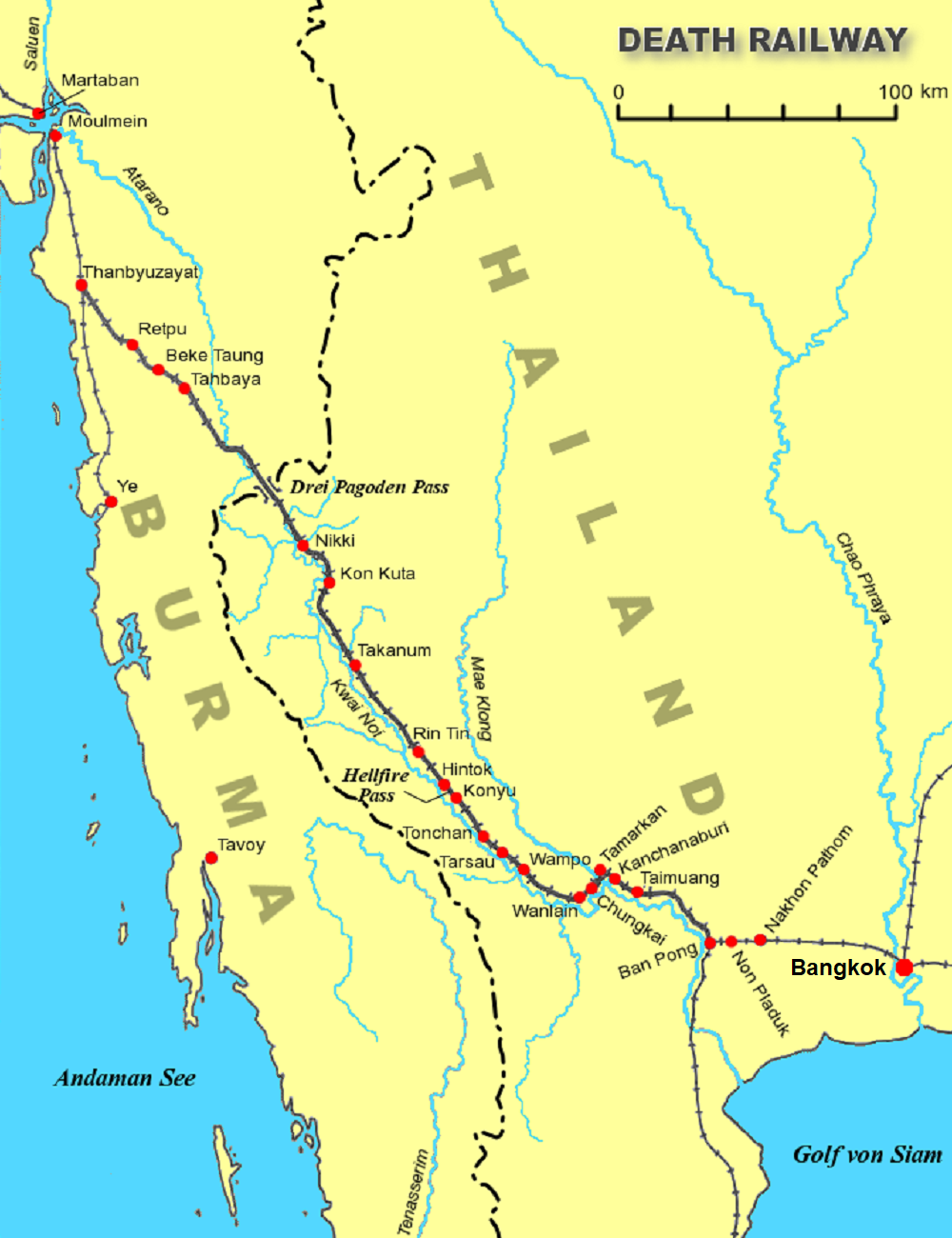|
Camp Nong Pladuk
Camp Nong Pladuk (also: ''Nompuradokku'') was a Japanese prisoner of war transit camp during World War II. It was located about five kilometres from the main railway station of Ban Pong near a junction station on the Southern Line to Bangkok. Nong Pladuk served as the starting point of the Burma Railroad. Numerous British, Dutch, and allied troops passed through Nong Pladuk to construct the railroad. Nowadays, it serves as a rail road maintenance and repair facility. History In 1939, plans had been developed by the Empire of Japan to construct a rail road connecting Thailand with Burma. Nong Pladuk was chosen as the starting point, because it was the location of rail yard on the Southern Line to Bangkok. A camp was constructed to the north of the railway. On 23 June 1942, the first 600 British prisoners arrived from the First Mainland Party lead by Major R.S. Sykes of the 18th Infantry Division. The first groups were tasked to clear the forest, built the shelters, and a Ja ... [...More Info...] [...Related Items...] OR: [Wikipedia] [Google] [Baidu] |
Burma
Myanmar, ; UK pronunciations: US pronunciations incl. . Note: Wikipedia's IPA conventions require indicating /r/ even in British English although only some British English speakers pronounce r at the end of syllables. As John Wells explains, the English spellings of both Myanmar and Burma assume a non-rhotic variety of English, in which the letter r before a consonant or finally serves merely to indicate a long vowel: łmj├”nm╔æ╦É, ╦łb╔£╦Ém╔Ö So the pronunciation of the last syllable of Myanmar as ╔æ╦Éror of Burma as ╔£╦Érm╔Öby some speakers in the UK and most speakers in North America is in fact a spelling pronunciation based on a misunderstanding of non-rhotic spelling conventions. The final ''r'' in ''Myanmar'' was not intended for pronunciation and is there to ensure that the final a is pronounced with the broad ''ah'' () in "father". If the Burmese name my, ßĆÖßĆ╝ßĆößĆ║ßĆÖßĆ¼, label=none were spelled "Myanma" in English, this would be pronounced at the end by all ... [...More Info...] [...Related Items...] OR: [Wikipedia] [Google] [Baidu] |
